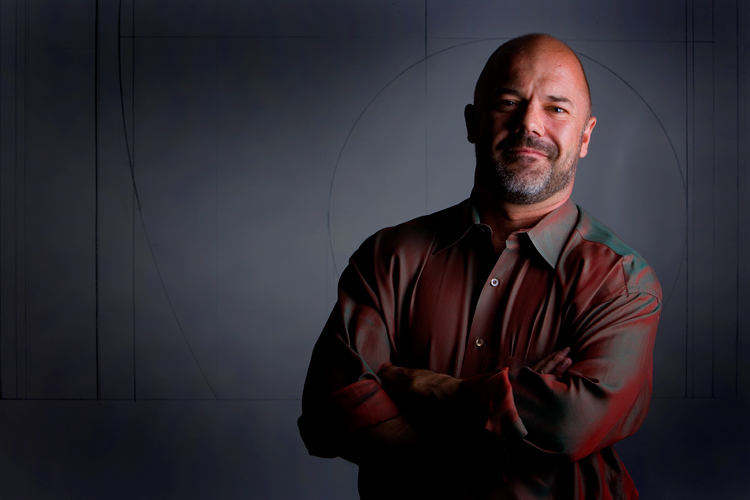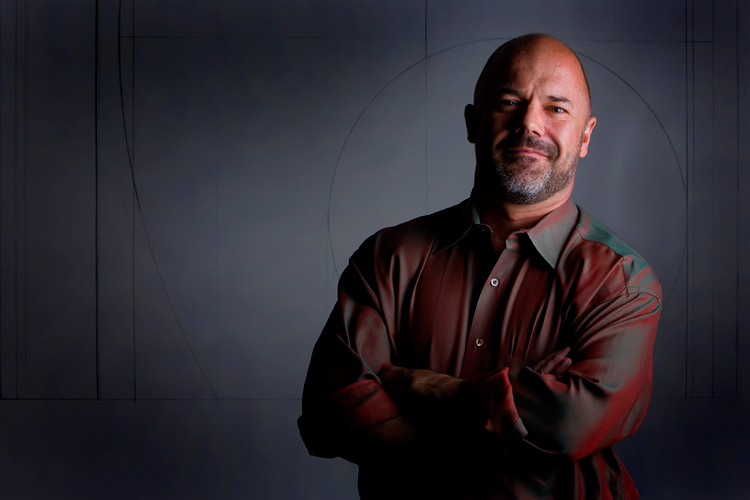BY SACHA FEINMAN
Andrew Sullivan is a journalist and political commentator. A former editor of the New Republic, he is a widely published author known for his irreverent and fiery political commentary, showcased in his blog, the Dish. He is a graduate of the John F. Kennedy School of Government at Harvard University.
KSR
The political influence of blogs is on the decline right now. How do you respond to that?
SULLIVAN
I don’t really know, because, to be honest with you, I don’t really think about that when I’m doing what I’m doing. . . . As a writer, I’ve always just written what I write and never worried about who it will influence; in fact, I’ve always been slightly terrified it might influence somebody because I don’t really write in order to exercise power. I write to make myself feel better and to try and get at the truth. . . . I don’t write to influence anybody, and I think that I’ve succeeded in that regard. . . . What I can tell you is that our growth in readership is continuing; we’re up 20 percent over last year. We’re at 1.4 million people, which blows my mind.
I do think that some of the things that have resonated online—the scandals, the moments, the YouTubes—well, twenty years ago, [former Republican presidential candidate] Herman Cain’s answer on Libya would first of all not be televised and second would not have been disseminated within minutes and be available for people to look at, so I disagree in that sense. Blogs play an important role; they’re a huge portal for a lot of people on the Web.
KSR
When I think about the 2008 election cycle, I think about you driving so much of the conversation about Sarah Palin. And I don’t necessarily see anyone in the blogosphere today doing what you were doing then.
SULLIVAN
I would like to think that not just [about] Palin, but [Barack] Obama [as well]. . . . The October 2007 cover story with the Atlantic and then my basic argument in favor of Obama . . . that’s where we got this huge boost in readership. [Obama adviser David] Axelrod actually said that we were critical to Obama’s breakthrough against [then Senator Hillary] Clinton. So that’s a lot of influence, I guess, but I don’t think about that. And I think that keeping the pressure up on Palin, getting right in her face with that whole thing . . . now, the reason I did that is because there was no vetting, and we had two months and she could be vice president. That’s very rare.
I eventually found out, via various sources, that she read it every day just as you were reading it, and my own suspicion is that she’s not running because she knows there is more shit out there she does not want to handle and couldn’t handle, so finally she’s acting rationally.
But, this year . . . you may well be right. I think [this] is a slightly different and disparate period. I think we’re not involved in this sudden, amazing movement with Obama. Also, blogs have been so co-opted by the mainstream media that you think that blogs themselves are not so influential. But if you look at Nate Silver, if you look at Greg Sargent, there are a lot of embedded bloggers now. And I’m, of course, within the Daily Beast umbrella, even though my own blog is its own sort of fiefdom. So it may be an aspect of blogs being more integrated into the general media, which makes them seem less influential because they’ve fused.
And I think the mainstream media, having observed the ’08 cycle, said, “shit, well, the blogs drove the story, which is our job, so one way we’ll reclaim that is to acquire them.” . . . When we did the Iran stuff, which I think was intensely influential, not just in what we were doing in terms of the subject matter but also the way we did it—the innovation of a live blog of a revolution with video, tweets, and really being on the ground there—we were just making it all up as we went along. We just realized that we had this tool that we can innovate in a minute, and we could try shit. Because there was nobody above us saying, “Oh don’t do that; let’s get it past this editor and that editor. . . .” Instead, I was just like, “fuck it, let’s do it, let’s try it out,” and [we] did that. Three of us on twelve-hour shifts through the day and night because in Tehran we didn’t want to miss what was happening the next day. So within seconds of Neda being shot in the head,# we had her video on the blog, and we were the number 1 item on the Farsi dig.com, which was a pretty wonderful thing to feel. That’s why we’ve also made a commitment right now to Syria.
KSR
How much of what we’re talking about has to do with the rise of microblogging via Twitter and Facebook? Are they stealing some of the thunder of traditional blogs—long-form blogs like yours or Nate Silver’s?
SULLIVAN
You keep thinking about this as if it’s zero-sum; as if it’s we lose influence and they gain it. That is not how I understand the Internet, to be honest with you. I understand it as a non-zero sum phenomenon in which I’m not losing any readers and yet the communication between me and Facebook is critical. I think that on Facebook in particular, everyone will soon have their own blog.
As for Twitter I do think that there are conversations going on on Twitter that have supplanted what used to be the blogosphere because it’s on the air.
KSR
Coverage of the Arab Spring and Occupy Wall Street is occurring on Twitter and Facebook so blogs like yours don’t seem to be what’s driving the political dialogue.
SULLIVAN
No, the blogs like mine were a transitional form before everybody had a blog. However, not everybody’s blog is that interesting. And what you try and do is what we tried to do. For example, with the Republican debates: we specialized in live blogging it, and then made sure to give you live analysis from all the best minds on the Web within an hour. And we had massive traffic for that.
I’m constantly trying to make our blog the best it can be, and I’ve had to reinvent the economics of journalism. For six years I did it for nothing because no one thought it was worth anything. I did, but I knew it would take time.
KSR
You’re saying you’ve had to reinvent the economics of journalism?
SULLIVAN
[The Dish was previously hosted] at the Atlantic. . . . When we arrived they really hadn’t had a Web site before. I was asked to go there precisely to kick-start it, and when I got there my blog’s traffic was something like four to five times their traffic, which begs the question: “What is the Atlantic and what is Andrew Sullivan?” This also causes a sort of branding problem for the Atlantic, though they successfully added a lot of other content to the site. But my last year there, the Dish brought in almost two million dollars worth of advertising, which is partly a credit to the advertising abilities of the Atlantic.
So the question then becomes: Well, I’m on a salary. That pay is entirely generated by me. The Atlantic really has no control over it, as they’re essentially a server and a platform. So is that fair? We’re trying to get into a position where it’s fairer.
KSR
Do you pay attention at all to what drives traffic?
SULLIVAN
I do it intuitively. I don’t do any of that SEO [search engine optimization] crap. I don’t care about it. I do this because I’ve been a mainstream writer/editor of a magazine, and this was an opportunity to reach readers with no intermediary, with no publisher to suck up to, no editor to persuade. All the stuff that you have to go through, from the moment of first conception to getting a piece into a publication, is a fucking nightmare. Now I don’t have to do anything at all; I can just press “publish” and be done with it. That’s the joy of it. It’s too much fun to be doing SEO.
KSR
You’ve said running a blog requires a diverse skill set. What are some of the newest abilities that you’re now trying to master?
SULLIVAN
TV. I’m hoping to launch a TV component of the blog soon. TV and blogs are not separate; TV is over and everything is online now. I was looking online at YouTube clips of Bill Buckley’s old Firing Line shows. They’re amazing, half-hour discussions with somebody he disagrees with. They weren’t always civil; he called Gore Vidal a “faggot” and threatened to punch Noam Chomsky in the face. But the idea of Buckley and Chomsky debating on TV just isn’t present anymore. So my idea is to do this online. The questions would be crowdsourced in advance. I’d be representing my readers, and we’d post them in three-minute segments throughout the week. But if you wanted to sit down on a Sunday and watch the whole thirty minutes, then that would work.
KSR
Are you becoming more interested in classic long form and expressing yourself in that way?
SULLIVAN
No. My friends tell me that they miss my essays and books, and I’ve even tried to quit blogging a few times. I did declare the blog over in 2005, and then Benedict [XVI] became Pope, and I couldn’t help myself! I nearly had a heart attack! I knew what that meant, having followed [Cardinal Joseph] Ratzinger for years. But I do want to write a book [on] Christianity, as I do believe that religion is in a crisis in the world right now. What is represented as Christianity to this generation is so alien to the spirit of the gospels. The corruption and the dysfunction in the Catholic church is at such crisis levels that it’s making it difficult to hang in there with the institution. But I want to prove that a thoroughly modern person can believe in the same power of Jesus.
KSR
We’re going to do a one-word association, rapid-fire response: Larry Summers.
SULLIVAN
Pompous asshole.
This article was originally published in the 2012 edition of the Kennedy School Review.
Sacha Feinman is a 2013 Master in Public Policy candidate at the John F. Kennedy School of Government at Harvard University. He is a journalist whose work has appeared in the Los Angeles Times and Slate.
Photo source here.


